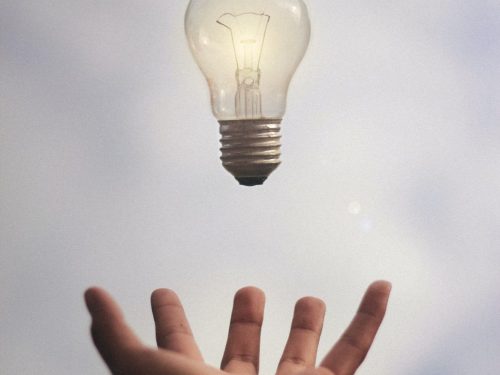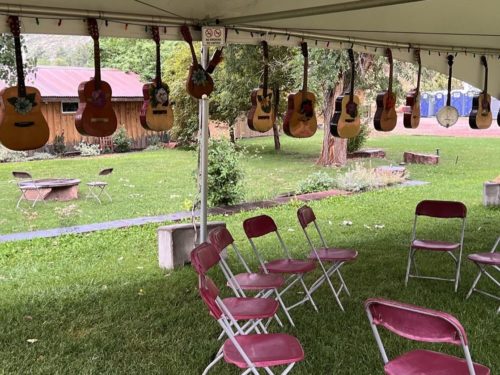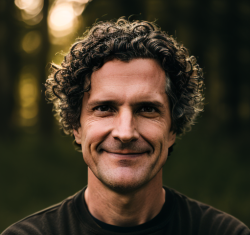
Wisdom, adult development...and the self-transcendent Elon Musk?
Elon Musk is a lot of things: richest person in the world, cunning businessman, ambitious risk-taker, technological visionary.
But you’d be hard-pressed to make a case that he’s wise. What do I mean by wise? Here’s an equation I came up with:

Wisdom involves both the inner life and public life.
Wisdom of the “inner life” means having equanimity (an abiding inner calm and contentment, regardless of external circumstances) and insight (a deep, experienced awareness of the true nature of oneself).
Wisdom of the “public life” means having insight (this time it refers to a deep awareness of the true nature of the world) and discerning action (the ability to identify and take action that reflects the true nature of oneself in the world).
That’s how I understand wisdom. I also like Wikipedia’s definition, and the attributes that result from having wisdom:
Wisdom is the ability to contemplate and act using knowledge, experience, understanding, common sense and insight. It is associated with attributes such as unbiased judgment, compassion, experiential self-knowledge, self-transcendence and non-attachment, and virtues such as ethics and benevolence.
So back to Elon.
Elon hardly seems self-transcendent, non-attached, or benevolent. He often presents as egotistical and bombastic.
Equanimity isn’t his calling card.
Tabloids call his personal life “turbulent.” Even Forbes states that, “his bizarre, almost Trump-like behavior, actions and pronouncements should give investors, competitors and even customers plenty of pause. Musk’s ego is huge, like Trump’s. And he seems loathe to accept the idea that he could be wrong, or off the rails about any topic…like Trump. He also does not take criticism well…like Trump.”

Is it possible for Elon to become wise?
Imagine if Elon’s cunning was matched with an equal amount of compassion. His ambition matched with Zen-like insight. His vision matched with love.
Not everyone can become a billionaire. But we can all walk a path toward wisdom. The problem is that we plateau. At some point in life, most of us resist further growth.
Yet wisdom is a natural state toward which humans develop.
It’s well known that infants go through a predictable set of developmental milestones. This is where the “What to Expect” pregnancy and parenting book series comes from.
In the same way, there is a predictable series of developmental stages that happen in adulthood.
Robert Kegan developed the adult stages framework. I’m a huge fan of his student, Jennifer Garvey Berger, an author and coach who has written many books about the journey through the adult stages. Most of what I present here summarizes content from her book, Changing on the Job.
The self-sovereign stage
(13% of adults are self-sovereign or transitioning to the next phase.)
When I was young, my mom would say “the world doesn’t revolve around you!” But I thought it did…after all, I was in the self-sovereign stage of development.
I was mostly driven to act by what I wanted for myself. Other people’s interests were important only if they affected my interests. (It’s hard to experience true empathy in the self-sovereign stage!)
This stage is most common in teenagers and young adults, but sometimes extends throughout adulthood. It’s easy to wrongly assume a selfish person has a basic character flaw, when in fact it may simply reflect their self-sovereign developmental stage.
The development shift away from self-sovereign occurs when we learn to see the world through the eyes of others.
This gives me hope.
When a self-sovereign person gains power and influence, they can do tremendous harm. Donald Trump is a perfect example. What if we became really good at helping self-sovereign leaders develop? It could have a powerful impact on the world’s most entrenched problems.
The socialized stage
(46% of adults are socialized or transitioning to the next phase.)
A socialized adult identifies with a particular “in” group. For example, their religion, political party, geographical identity, etc. They believe that the group’s norms are the “right way” to be in the world. This is the most common stage for adults.
Socialized adults struggle with internal authority. During conflict, they have difficulty deciding for themselves. They base their decisions on what their “in” group values. They have a relatively weak sense of self that’s distinguishable from others’ expectations or social roles.
Being oriented to others in this way is an advance over the self-oriented focus of the self-sovereign stage. But it’s also the major limitation for people in the socialized stage. They can’t gain enough distance from the voices of others to hear their own voice.
The development shift out of socialization occurs when we encounter conflicting ideas that can’t be resolved through the lens of our “in” group. We begin to see differing perspectives as reasonable options, and look for new ways to make choices.
For most of us, the shift from socialized to self-authoring is THE developmental work of adulthood.
The self-authoring stage
(43% of adults are self-authoring or transitioning to the next phase.)
Self-authoring adults consider a variety of perspectives, examine and reflect upon them, and then decide their own position on a given question. They’ve developed an internal, self-governing system to weigh decisions and reconcile conflicts.
Self-authoring individuals are what you probably think of as a “leader.” They are self-guided, self-motivated, and self-evaluative. They feel empathy and take others into consideration when making decisions, but do not feel torn apart by conflict. They are secure in their internal system for decision-making.
The self-authoring stage has Achilles’ heels too. There’s a tendency to lack patience for, or understanding of, self-sovereign and socialized mindsets. This makes effective communication with these mindsets difficult.
This is a serious limitation considering 59% of adults are in the self-sovereign and socialized stages!
The shift beyond self-authoring happens when we question own internal system. This almost never happens before mid-life. Even then, it’s rare.
The self-transforming stage
(less than 1% of adults)
In the self-transforming stage, a person can see multiple layers of every issue and hold very different perspectives simultaneously. They do not view the world in terms of polarities. What most think of as black and white, they see as various shades of grey. As such, they are less ideological and opinionated. They are interested in process more than product or outcome.
I see self-transforming as being the stage of wisdom, with its “unbiased judgment, compassion, self-transcendence, and non-attachment.” Jennifer Garvey Berger believes that more self-transforming people are needed for humanity to navigate the complex global issues we face today.
That’s a powerful statement. It became a seed that helped shape my vision for coaching.
Humanity needs large-scale, systemic change, and fast. How can we help more people develop into the self-transforming stage?
Matching wisdom with wealth
The global concentration of wealth is clearly not just. But what if, for now, we view it as a design advantage for creating large scale, global change? It doesn’t seem to be going away anytime soon. What if we used it to help solve the major crises we face?
Imagine if Thich Nhat Hanh had been a billionaire. Imagine if his love of peace was matched with Donald Trump’s ability to use the media. Imagine if Elon Musk spent his fortune on loving kindness training instead of…say…a legal battle with Twitter.
What impact could we make by helping a relatively few, powerful people develop the wisdom they need to create positive change with their wealth?
Even if you’re not among the mega-wealthy, your investments, philanthropic choices, and modeling behavior influence society.
Are your actions guided by equanimity in your heart? What if they were?
What if you could intentionally develop wisdom?
What if it’s already inside you?
We have not even to risk the adventure alone. The labyrinth is thoroughly known…where we had thought to travel outwards, we shall come to the center of our own existence. And where we had thought to be alone,
we shall be with all the world.
Joseph Campbell
Subscribe to my newsletter.
I try to send one per week. But I’m committed to not being mechanistic about it.
Life happens in cycles and so does my newsletter energy.







